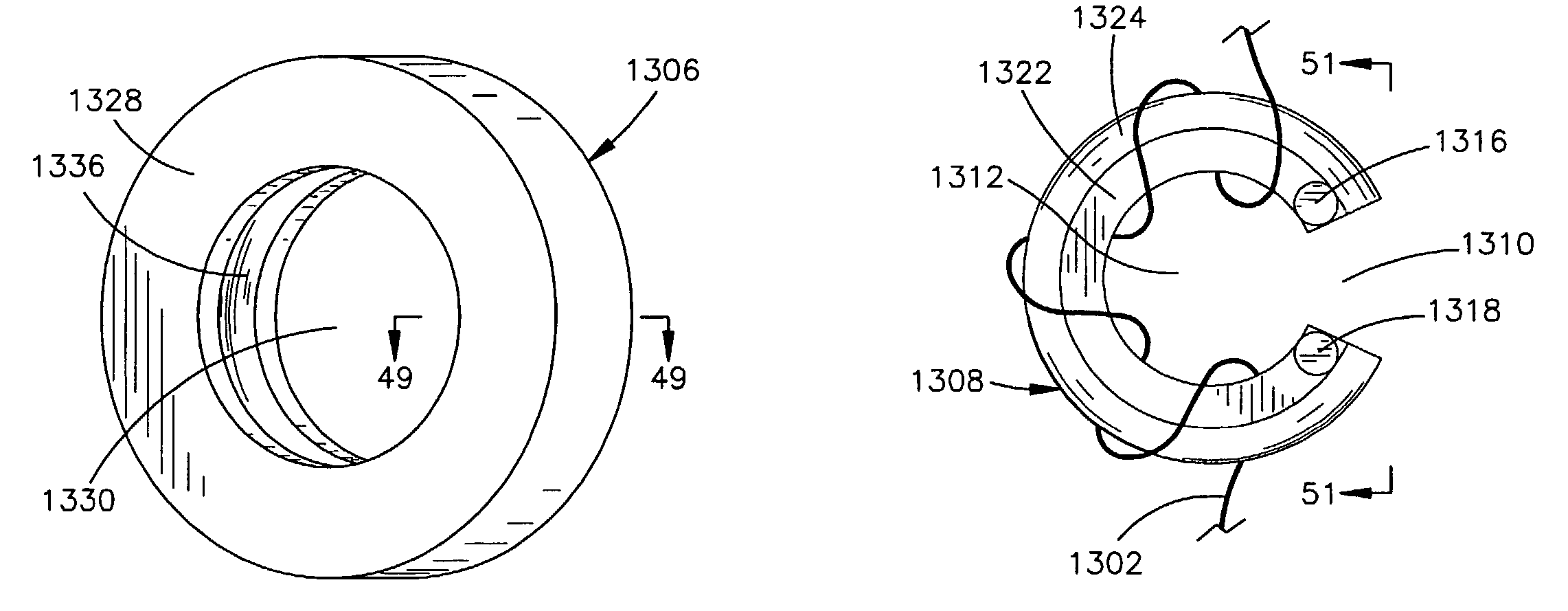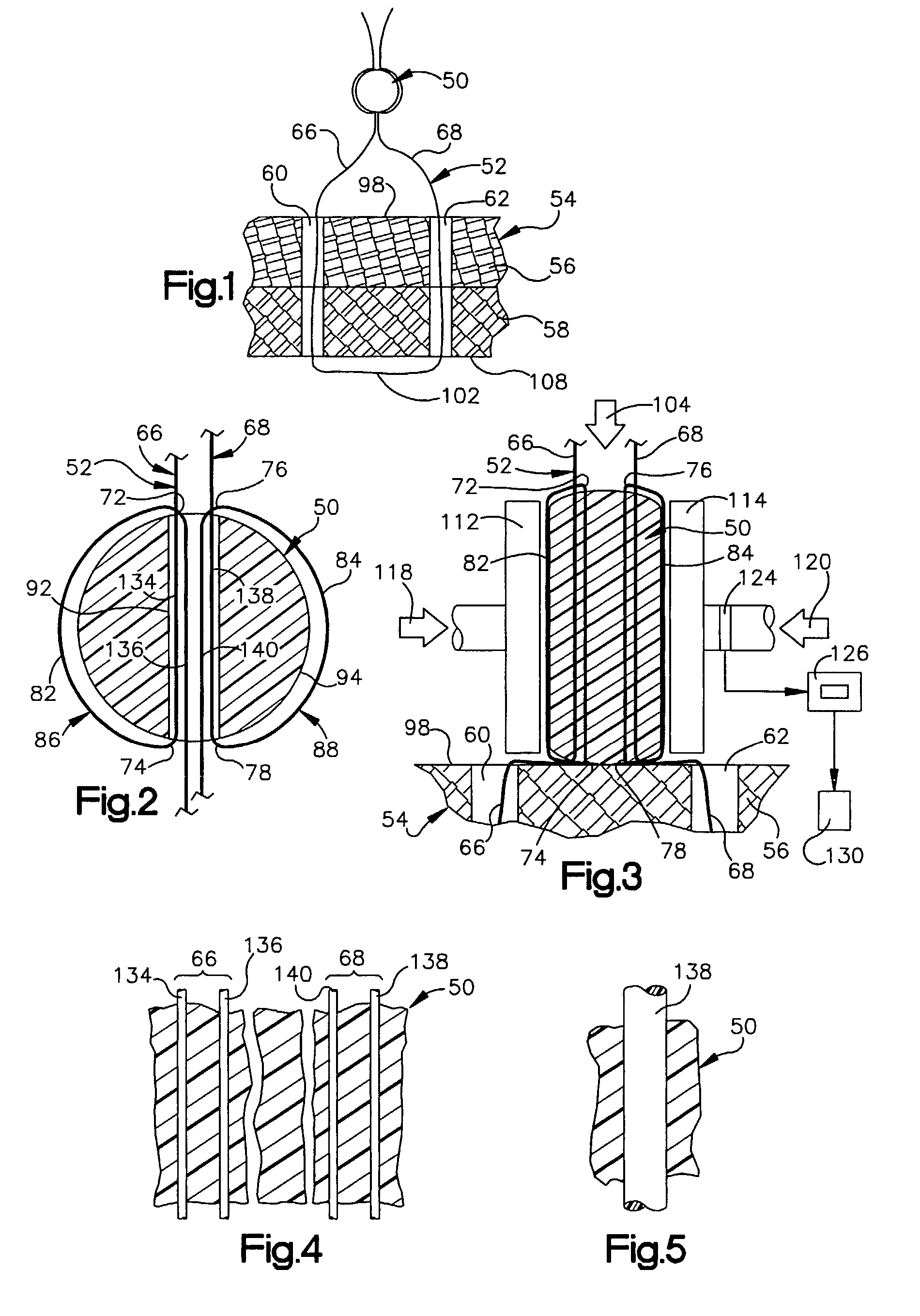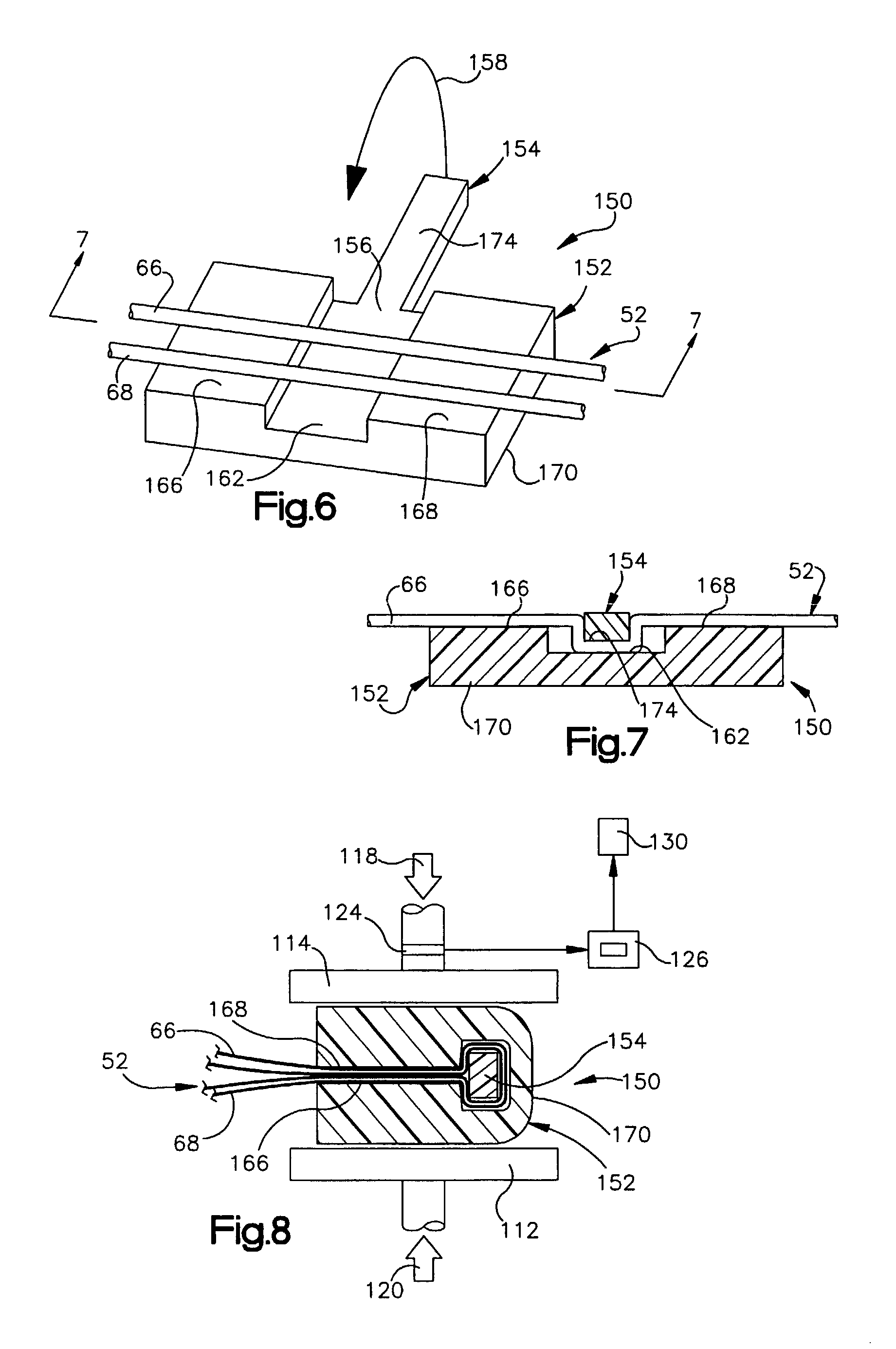Method and apparatus for securing a suture
a technology for securing sutures and sutures, which is applied in the direction of snap fasteners, shoelace fastenings, buckles, etc., can solve the problems of reducing the overall force transmitting capability of the suture, tying a knot is difficult, and the difficulty of securing sutures relative to body tissu
- Summary
- Abstract
- Description
- Claims
- Application Information
AI Technical Summary
Benefits of technology
Problems solved by technology
Method used
Image
Examples
embodiment
of FIG. 20
[0179]In the embodiment of the invention illustrated in FIGS. 17–19, the cylinder 316 is rotatable relative to the housing 314. In the embodiment of the invention illustrated in FIG. 20, cylinders are fixedly connected with the housing. Since the embodiment of the invention illustrated in FIG. 20 is similar to the embodiment of the invention illustrated in FIGS. 17–19, similar terminology will be utilized to identify similar components. It should be understood that one or more features of the embodiments of the invention illustrated in FIGS. 1–19 may be used with the embodiment of the invention illustrated in FIG. 20.
[0180]A suture retainer 356 includes a rectangular housing 358 which encloses a plurality of cylinders 360, 362, 364 and 366. The cylinders 360–366 have parallel central axes which extend parallel to flat rectangular upper and lower side walls 370 and 372 of the housing 358. Opposite end portions of the cylinders 360–366 are fixedly connected with rectangular ...
PUM
 Login to View More
Login to View More Abstract
Description
Claims
Application Information
 Login to View More
Login to View More - R&D
- Intellectual Property
- Life Sciences
- Materials
- Tech Scout
- Unparalleled Data Quality
- Higher Quality Content
- 60% Fewer Hallucinations
Browse by: Latest US Patents, China's latest patents, Technical Efficacy Thesaurus, Application Domain, Technology Topic, Popular Technical Reports.
© 2025 PatSnap. All rights reserved.Legal|Privacy policy|Modern Slavery Act Transparency Statement|Sitemap|About US| Contact US: help@patsnap.com



